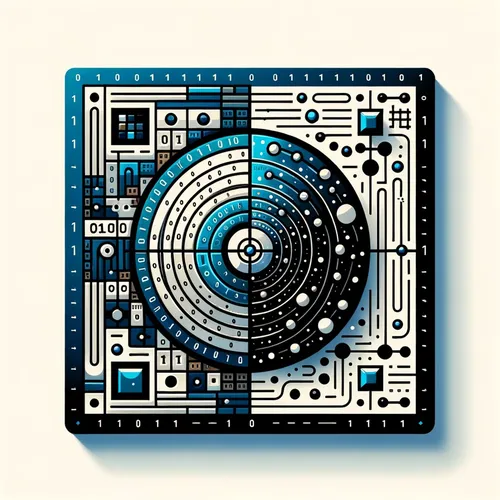Quantum Computing in 2025: Diamond Tech, Logical Qubits, and Easier Access
- Author
- Quiet. Please
- Published
- Sun 09 Feb 2025
- Episode Link
- https://www.spreaker.com/episode/quantum-computing-in-2025-diamond-tech-logical-qubits-and-easier-access--64284813
This is your Quantum Bits: Beginner's Guide podcast.
Hey there, I'm Leo, your go-to expert for all things quantum computing. Let's dive right into the latest breakthroughs that are making quantum computers easier to use.
As we kick off 2025, the quantum computing landscape is buzzing with excitement. Just a few days ago, I was reading about the predictions from industry leaders like Marcus Doherty, Co-Founder and Chief Scientific Officer at Quantum Brilliance. He's betting big on diamond technology becoming a game-changer in the industry. The idea is to use diamond-based quantum systems in data centers and edge applications, which would allow for room-temperature quantum computing without the need for large mainframes or absolute zero temperatures. This could lead to smaller, portable quantum devices that can be used in various locations and environments.
But that's not all. The transition to logical qubits is another significant development that's expected to revolutionize the field. As Dr. Alan Baratz, CEO of D-Wave, pointed out, logical qubits will enable quantum computers to tackle real-world problems with unprecedented precision. This is because logical qubits are less prone to errors and can handle more complex computations.
Jan Goetz, Co-CEO and Co-Founder of IQM Quantum Computers, also emphasized the importance of quantum error correction. He believes that scalable error-correcting codes will reduce the overhead for fault-tolerant quantum computing, making it more practical for commercial applications.
Now, let's talk about the latest quantum programming breakthroughs. Google recently launched its Willow quantum chip, which boasts strong error correction improvements. This is a significant step towards commercially relevant applications. Classiq, Deloitte Tohmatsu, and Mitsubishi Chemical have also demonstrated the power of quantum computing in new material development, showcasing substantial acceleration of quantum-based insights.
The IonQ Quantum OS and Hybrid Suite are other notable developments that are making quantum computers easier to use. These tools are designed to power IonQ's flagship Forte and Forte Enterprise quantum systems, providing a seamless integration of classical, AI, and quantum resources.
As we move forward in 2025, I'm excited to see how these advancements will shape the quantum computing landscape. With the convergence of quantum computing and AI, we can expect to solve previously intractable problems and unlock new possibilities in fields like medicine, climate modeling, and materials science. So, stay tuned for more updates from the quantum world, and let's explore the endless possibilities together.
For more http://www.quietplease.ai
Get the best deals https://amzn.to/3ODvOta
